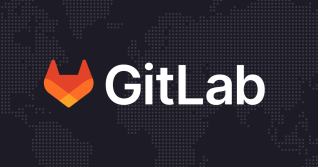After adopting the GitLab DevSecOps Platform, the learning and certification arm of tech giant Cisco Systems, Inc. saw its toolchain shrink and was able to offer its entire software development team a way to improve collaboration and accelerate production.
That’s part of the story that Hank Preston, principal engineer and lead architect with Cisco Learning and Certifications, shared in an on-stage interview at the Chicago stop of GitLab’s DevSecOps World Tour.
Preston also spent part of his conversation with Nico Ochoa, senior major account executive at GitLab, talking about the rapid rise in interest in AI and how that is likely to affect everything from how they create software to how newer developers learn to code.
Here are some of the opportunities Cisco Learning and Certifications is gaining from using GitLab:
1. Getting a handle on version control
Preston said one of the biggest challenges he was looking to overcome by adopting a DevSecOps platform was resolving and preventing conflicts they had keeping track of code modifications and version updates, which can be easy to lose sight of when handling them manually. For example, the team had been storing templates and configuration pieces in different places and ended up having an “extreme inability” to know what had been changed and where it went, he said. Using a platform gives the team a way to more easily and clearly manage source and version controls. “It gave us a way to actually keep everything in one place, and understand the trajectory and history of changes,” he said.
2. Ensuring accountability
“Gaining accountability was a big one for us,” Preston told the audience. “We needed to know when something changed, who changed it, and who approved that change.” In an efficient, high-performing DevSecOps team, this kind of transparent accountability is critical. Both the development and operations teams have an equal stake in DevSecOps success. The problem is that it can be difficult to do when team structures and responsibilities are outdated or haven’t been updated in documentation. Clearly distributing functions and noting who needs to do a task, as well as when and who accomplished a task, makes this work. “When I taught a bunch of network engineers how to do merge requests and branching, it became less of a challenge for us,” Preston said.
3. Consolidating their toolchain
“Reducing our toolchain … that was one of the reasons we selected GitLab. I didn't want to have to have a source control tool and a CI tool and an issues tool,” Preston said.
Cisco Learning and Certifications still uses Jira — a decision Preston said was not his own. “I'm looking forward to potentially getting rid of [Jira] in the future. But not having to manage a bunch of tools was a big value for us because then there are less things to integrate, less things to upgrade, and less things I have to train people on how to use,” he added.
4. Boosting collaboration
When different team members want to collaborate on a project, sharing responsibilities and information, it’s critical for them to be able to all work in the same place. Preston explained that having a single, end-to-end platform that everyone works in means teammates don’t have to go looking for something across multiple tools. “Now everybody knows where to go to find the code and the templates they need. And the automation pieces are right there,” he added. “We don’t need to go looking for things or logging into, say, Mark's particular OneDrive folder to find a piece we need.”
5. Having a single source of truth
“I'm a big proponent of the concept of a single source of truth,” said Preston. “I tell people that the network shouldn't be the source of truth. That's the implementation of what our source of truth is.”
Cisco Learning and Certifications uses GitLab as the source of truth for a lot of its configuration templates, automation scripts and jobs, and infrastructure as code, according to Preston. “So whether it’s our data centers or sites, all the data should be aggregated and stored according to a single reference point. We have a plan and a way of doing things and everyone can see what that is,” he said.
6. Speeding up production
Preston also noted he’s using the platform to gain insight into and improve the time it takes to move a software project from ideation to development and into deployment. “One of the metrics I'm trying to use with our team now is how long it takes us to get something from an idea to working software,” he said. “If I’m trying to get an update into production or if I'm trying to fix something on the infrastructure stack, how long does it take us to get to where we feel comfortable pushing it into production? That's a metric we're watching. I don't want it to take 18 months to go from an idea to release. I needed that to be much faster.”
How AI could affect software creation, developer learning
During his on-stage talk, Preston also turned his attention to artificial intelligence (AI), speaking about the growing call for the use of AI in DevSecOps, how it may be regulated, and how it could affect software developers.
“AI in DevOps has changed dramatically just over the last three months or so,” he said. “The AI transition has been rapid. I can't even pretend to guess what the next two years of it will look like, let alone the next five years. I think it’s an interesting challenge, and, well, to be honest, it makes me personally nervous.”
He added that he’s concerned about the issue of intellectual property and who owns the code that AI generates. Will the software built by AI be owned by the company the code was built for, or by the person or company that created the AI?
“The intellectual property question is a big one. It’s something that has to be figured out,” he said.
Another thing that nags at Preston is how using AI in DevSecOps will affect the way people learn to develop code if it’s automatically being generated for them. Will people still become coding wizards if they don’t actually have to do it themselves?
“I think about how this will affect the path of software developers and engineers who are coming onto the team,” he said. “How will they become our coding experts in the future? I love the code generation process but it also makes me worried. I wonder — and part of me thinks I'm just being the grouchy old man — how do we teach the new engineers how to make a connection to MySQL if the minute they type ‘M-Y-S-Q-L,’ the code comes up? That’s a scary spot. I know there's a lot of value to the grunt work being thinned out, but there’s value that comes with the doing and learning.”
Answering a question about whether Cisco allows developers to use AI-generated code, Preston replied, “Generally, no.” He said executives need to work through intellectual property questions first, but AI is a tool they plan to implement.
Preston also was asked about maintaining standards when using AI to generate code. “We're looking for AI solutions we can leverage that will meet the coding requirements we have across the board,” he said. “But I think the question on standards is important. It's going to be the same way we handle it when people write code. Code will all have to be checked against set standards, whether it’s written by people or AI.”
Preston’s team within Cisco Learning and Certifications is responsible for creating and maintaining the software needed for the digital learning platform that offers instant user access to training information, classes, course materials, and exam preparation resources. Cisco employees use the platform to gain certifications, like CCNA, CCMP, and CCIE.
GitLab’s DevSecOps World Tour was designed to enable everyone — from technology champions to executives and software development team members — to gather and learn about the ideas and technologies driving the DevSecOps transformation. Learn more about our DevSecOps World Tour.




